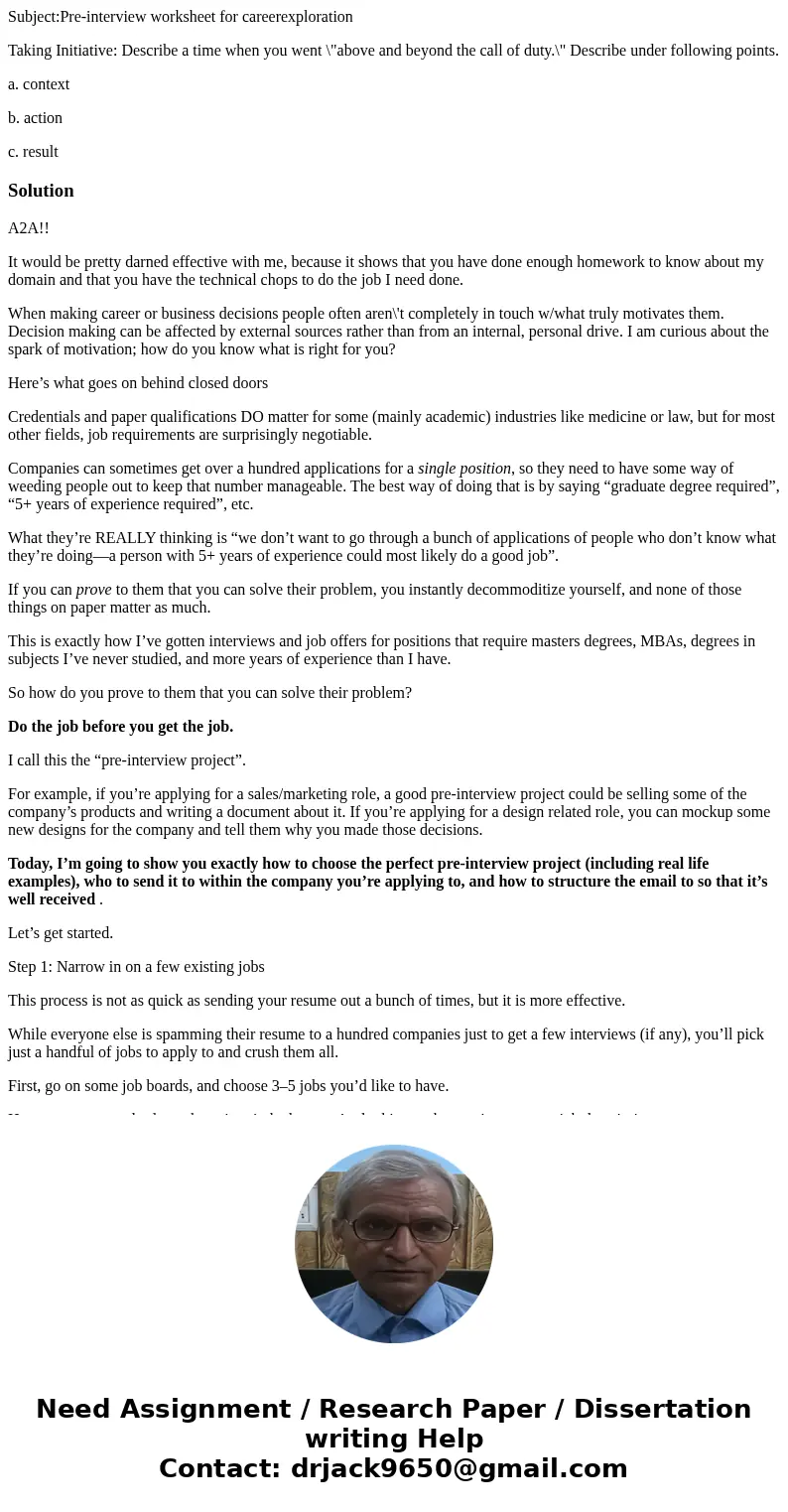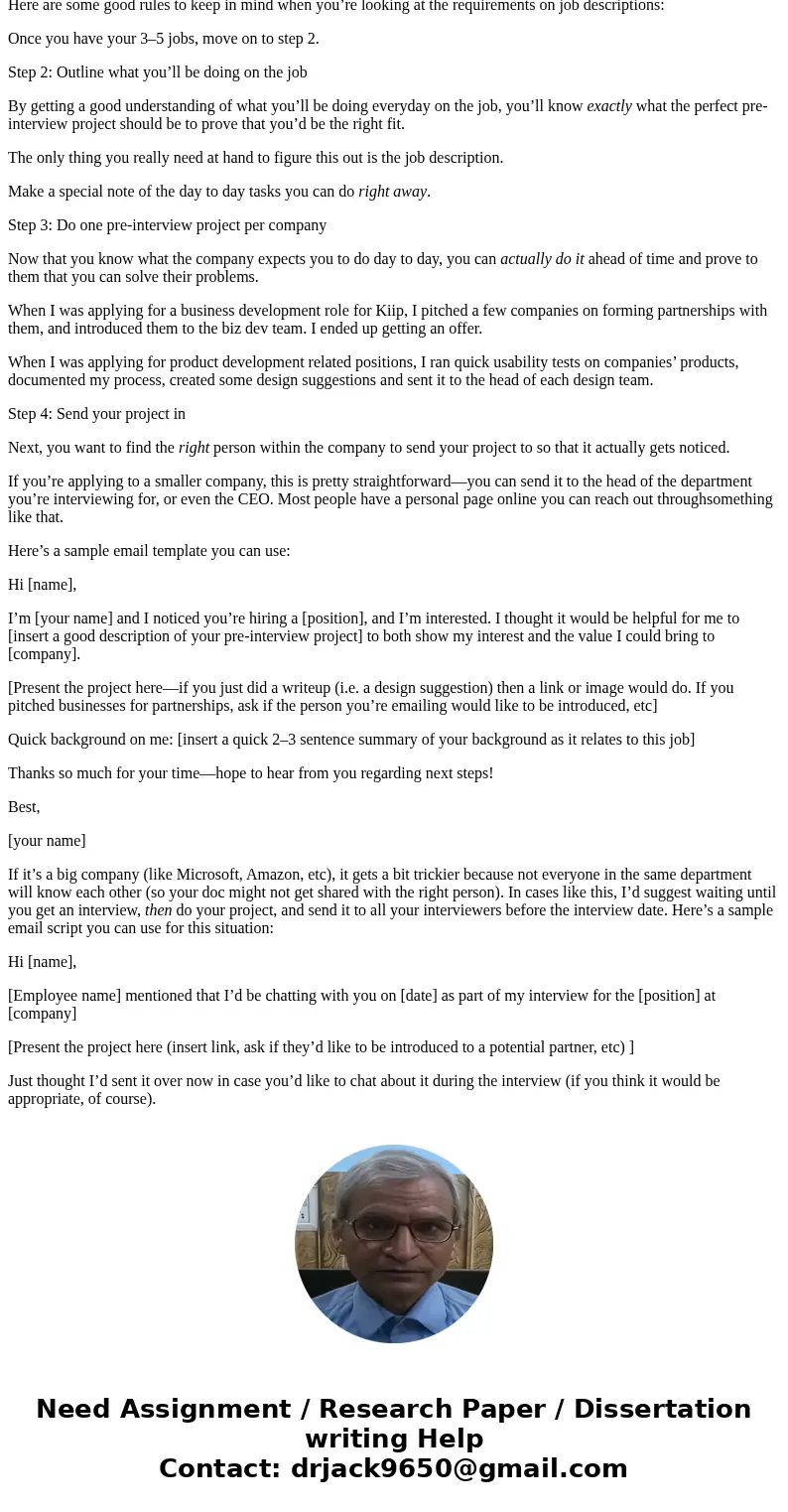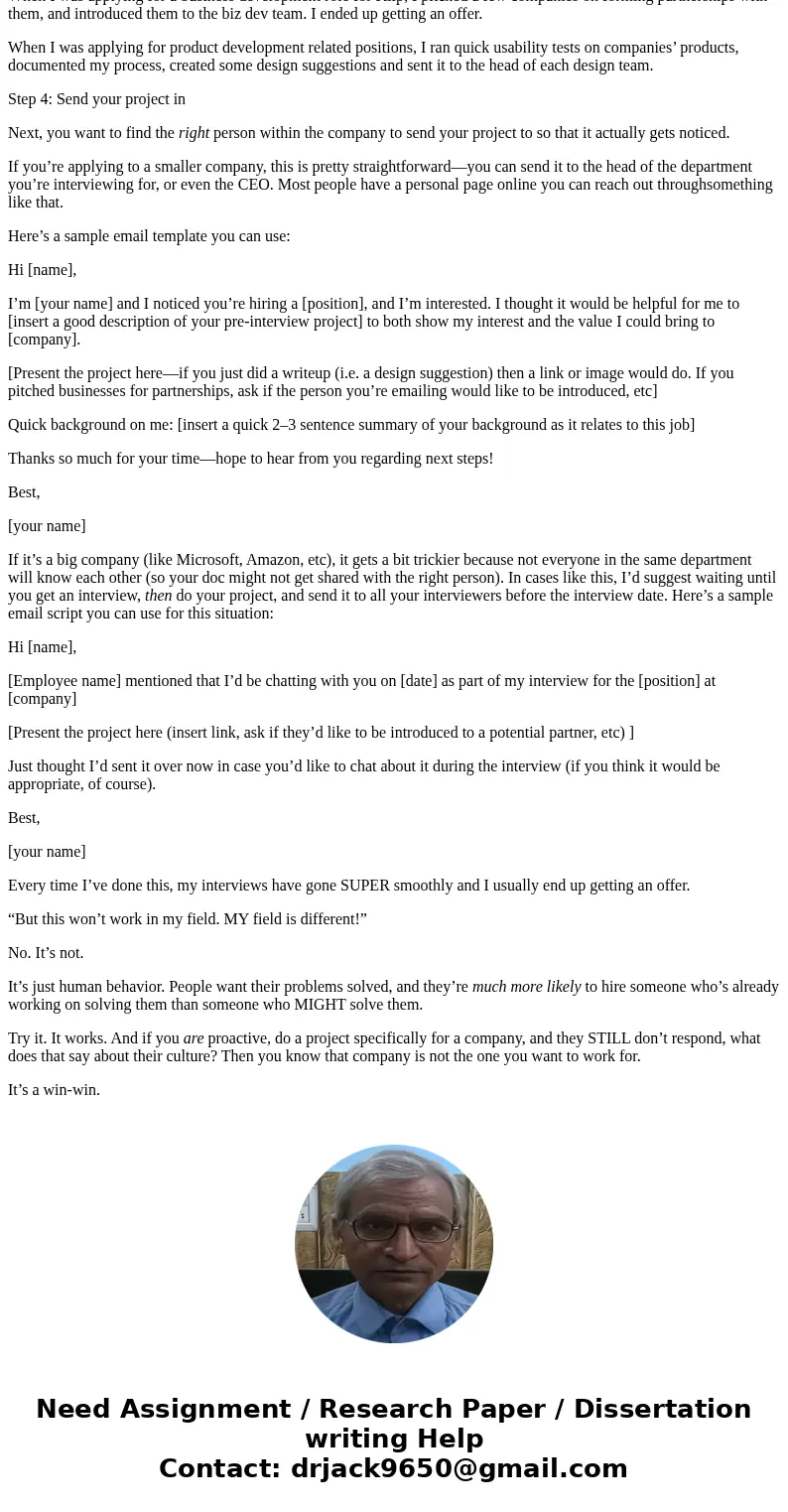SubjectPreinterview worksheet for careerexploration Taking I
Subject:Pre-interview worksheet for careerexploration
Taking Initiative: Describe a time when you went \"above and beyond the call of duty.\" Describe under following points.
a. context
b. action
c. result
Solution
A2A!!
It would be pretty darned effective with me, because it shows that you have done enough homework to know about my domain and that you have the technical chops to do the job I need done.
When making career or business decisions people often aren\'t completely in touch w/what truly motivates them. Decision making can be affected by external sources rather than from an internal, personal drive. I am curious about the spark of motivation; how do you know what is right for you?
Here’s what goes on behind closed doors
Credentials and paper qualifications DO matter for some (mainly academic) industries like medicine or law, but for most other fields, job requirements are surprisingly negotiable.
Companies can sometimes get over a hundred applications for a single position, so they need to have some way of weeding people out to keep that number manageable. The best way of doing that is by saying “graduate degree required”, “5+ years of experience required”, etc.
What they’re REALLY thinking is “we don’t want to go through a bunch of applications of people who don’t know what they’re doing—a person with 5+ years of experience could most likely do a good job”.
If you can prove to them that you can solve their problem, you instantly decommoditize yourself, and none of those things on paper matter as much.
This is exactly how I’ve gotten interviews and job offers for positions that require masters degrees, MBAs, degrees in subjects I’ve never studied, and more years of experience than I have.
So how do you prove to them that you can solve their problem?
Do the job before you get the job.
I call this the “pre-interview project”.
For example, if you’re applying for a sales/marketing role, a good pre-interview project could be selling some of the company’s products and writing a document about it. If you’re applying for a design related role, you can mockup some new designs for the company and tell them why you made those decisions.
Today, I’m going to show you exactly how to choose the perfect pre-interview project (including real life examples), who to send it to within the company you’re applying to, and how to structure the email to so that it’s well received .
Let’s get started.
Step 1: Narrow in on a few existing jobs
This process is not as quick as sending your resume out a bunch of times, but it is more effective.
While everyone else is spamming their resume to a hundred companies just to get a few interviews (if any), you’ll pick just a handful of jobs to apply to and crush them all.
First, go on some job boards, and choose 3–5 jobs you’d like to have.
Here are some good rules to keep in mind when you’re looking at the requirements on job descriptions:
Once you have your 3–5 jobs, move on to step 2.
Step 2: Outline what you’ll be doing on the job
By getting a good understanding of what you’ll be doing everyday on the job, you’ll know exactly what the perfect pre-interview project should be to prove that you’d be the right fit.
The only thing you really need at hand to figure this out is the job description.
Make a special note of the day to day tasks you can do right away.
Step 3: Do one pre-interview project per company
Now that you know what the company expects you to do day to day, you can actually do it ahead of time and prove to them that you can solve their problems.
When I was applying for a business development role for Kiip, I pitched a few companies on forming partnerships with them, and introduced them to the biz dev team. I ended up getting an offer.
When I was applying for product development related positions, I ran quick usability tests on companies’ products, documented my process, created some design suggestions and sent it to the head of each design team.
Step 4: Send your project in
Next, you want to find the right person within the company to send your project to so that it actually gets noticed.
If you’re applying to a smaller company, this is pretty straightforward—you can send it to the head of the department you’re interviewing for, or even the CEO. Most people have a personal page online you can reach out throughsomething like that.
Here’s a sample email template you can use:
Hi [name],
I’m [your name] and I noticed you’re hiring a [position], and I’m interested. I thought it would be helpful for me to [insert a good description of your pre-interview project] to both show my interest and the value I could bring to [company].
[Present the project here—if you just did a writeup (i.e. a design suggestion) then a link or image would do. If you pitched businesses for partnerships, ask if the person you’re emailing would like to be introduced, etc]
Quick background on me: [insert a quick 2–3 sentence summary of your background as it relates to this job]
Thanks so much for your time—hope to hear from you regarding next steps!
Best,
[your name]
If it’s a big company (like Microsoft, Amazon, etc), it gets a bit trickier because not everyone in the same department will know each other (so your doc might not get shared with the right person). In cases like this, I’d suggest waiting until you get an interview, then do your project, and send it to all your interviewers before the interview date. Here’s a sample email script you can use for this situation:
Hi [name],
[Employee name] mentioned that I’d be chatting with you on [date] as part of my interview for the [position] at [company]
[Present the project here (insert link, ask if they’d like to be introduced to a potential partner, etc) ]
Just thought I’d sent it over now in case you’d like to chat about it during the interview (if you think it would be appropriate, of course).
Best,
[your name]
Every time I’ve done this, my interviews have gone SUPER smoothly and I usually end up getting an offer.
“But this won’t work in my field. MY field is different!”
No. It’s not.
It’s just human behavior. People want their problems solved, and they’re much more likely to hire someone who’s already working on solving them than someone who MIGHT solve them.
Try it. It works. And if you are proactive, do a project specifically for a company, and they STILL don’t respond, what does that say about their culture? Then you know that company is not the one you want to work for.
It’s a win-win.



 Homework Sourse
Homework Sourse